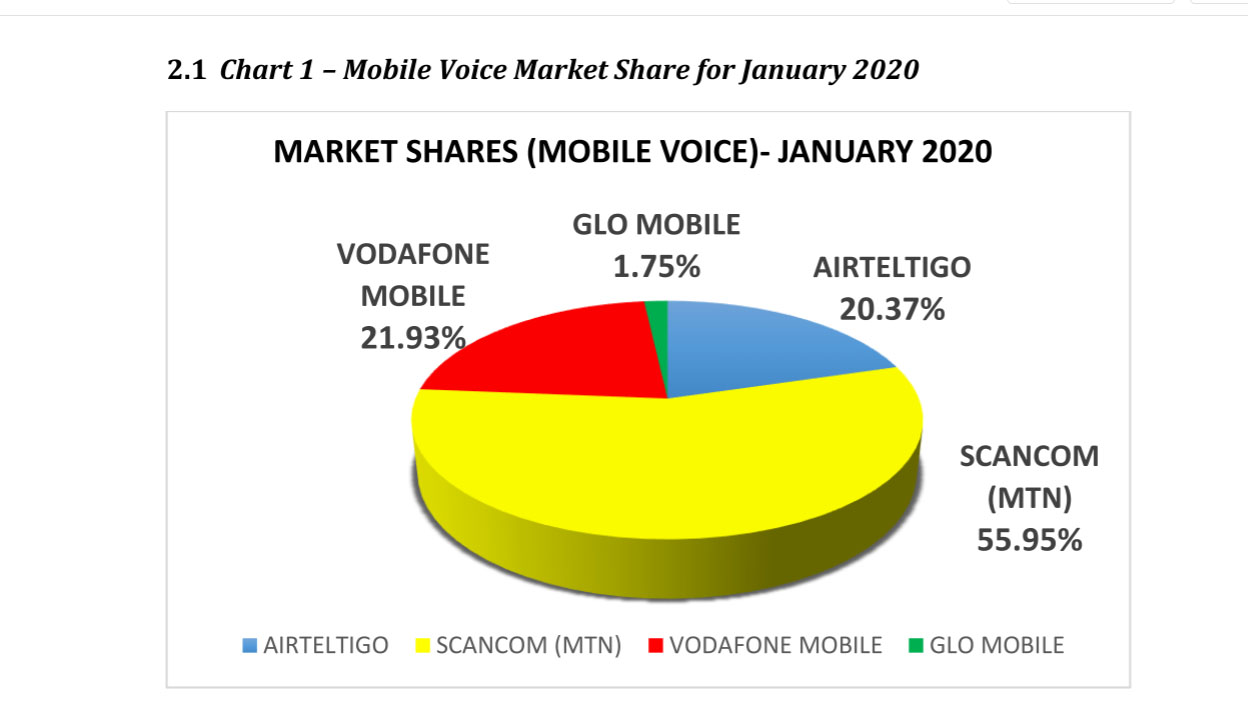
Govt to break monopoly in telecom sector
The government has directed the National Communications Authority (NCA) to enforce provisions of the Electronic Communications Act, 2008 (Act 775) and the National Telecommunications Policy (NTP) to address disparities in market and revenue share in the telecommunications sector.
Following the directive, the NCA will start immediately the implementation of specific policies to ensure a level-playing field for all network operators within the industry, with emphasis on maximising consumer welfare.
The Minister of Communications, Mrs Ursula Owusu-Ekuful, who disclosed this in Accra, said the latest reports received from the industry showed a worrying trend that demanded immediate action to correct the growing market imbalance and the creation of a near-monopoly in the industry.
MTN for instance currently enjoys almost 75 percent of the telecommunications market share.

Policy
Under the National Telecommunications Policy (NTP) any operator with 40 percent or more market share in voice, data, short messaging service (SMS), and value-added services such as mobile money is considered a significant market power (SMP).
The NCA, in accordance with that, has declared SCANCOM Limited (MTN) as an SMP, and with that designation, the regulator is required to take corrective measures under the law to facilitate more market competition, ensure proper pricing for consumers and facilitate the overall growth of the telecommunications industry.
What NCA will do
To correct the imbalance, the Ministry of Communications in a statement issued on Sunday pointed out that, the NCA would apply measures in exercise of its regulatory mandate, including asymmetrical interconnect rate in favour of the disadvantaged operators, setting of floor/ceiling pricing on all minutes, data, SMS and mobile money, review and approve all pricing by the SMP, as required by law, and require SMP not to have differential prices for on-net and off-net transactions.
It would also ensure various operator vendors were not subject to exclusionary pricing or behaviour, ensure that SMP’s access to information did not disadvantage any value added service of non-SMP operators and require operators to present implementation plans on national roaming services within the next 30 days for execution on or before the next 90 days, the statement said.
It added that the measures were to kick in immediately, and that the NCA was expected to work with all network operators which must cooperate to ensure it was done painlessly.
“We have come a long way in a very dynamic industry which has seen ancestors of all the current operators being the dominant player at one stage. Ghana Telecom, Mobitel, now MTN. Measures taken then to open up the market to ensure fairer competition, though unpleasant to the dominant player then, eventually inured to the benefit of the consumer and resulted in the vibrant telecom sector of today . This will also have the same result over time. It is corrective and not punitive,” the Minister’s statement added.

Consumer benefits
The implementation of the policy will offer choice to consumers with the stimulation of innovative products and promotions, give consumers the power to switch service providers for other experiences and not restrict them to the largest provider.
It will also give consumers the choice to work with non-SMP operators.
In addition to that, it will create a catalyst for passive infrastructure sharing within the industry, especially for national roaming services, and increase service choice for consumers within areas where SMP is present.
The dominant operator will also not be able to use predatory pricing to eliminate competition, not be permitted to use its information on the consumer to preclude others from offering good innovative services at similar costs and not be permitted to charge a high price to call, send messages or transfer money to other services, while keeping its own prices low.
According to the minister, the policies would not permit an operator to offer lower quality services on interconnections to attempt to switch a friend’s operator to the monopolistic one.
Breaking monopoly
The new policy directive, according a statement signed and issued by Mrs Owusu-Ekuful was motivated by evidence of a growing market imbalance and the creation of a near monopoly in the telecom sector.
This imbalance, it said, potentially exposed Ghana to the dictates of the dominant operator and negatively impacted on competition and choice for the consumer, as well as investments within the sector.
The policy was, therefore, aimed at ensuring proper and healthy competition among telecommunications players, secure a much better pricing policy for consumers and facilitate a sound regulatory regime, the minister said.

Market share
Industry statistics for the fourth quarter of last year indicate that MTN has almost 75 percent of telecommunications market share, and this has been the trend over a three-year period, which also continued into the first quarter of this year.
“These statistics, while impressive and showing growth within the telecommunications and financial sectors, clearly show an uncompetitive and unprofitable environment for less dominant players in these industries,” the statement said.
Investment
It said the Ministry of Communications, and the government, for that matter, acknowledged the investments MTN had made in its operations over the years and noted that those investments had enhanced operations.
However, it said, the company’s growing dominance had impacted negatively on competition and consumer choice, necessitating corrective action.
It said the NCA’s functions and duties in that regard were outlined in the National Communications Authority Act 769 of 2008, Section 3 (e), which states:, “The authority shall ensure fair competition among licensees, operators of communications networks and service providers of public communications.”
Mrs Owusu-Ekuful said at a recent consultative meeting with relevant stakeholders in the telecommunications sector to communicate the policy directive and ensure its smooth implementation that “while the telecommunications policy aims to encourage the growth of the telecommunications sector, it also seeks to create a level playing field and ensure a regulatory regime that ultimately benefits the consumer”.
That currently did not exist, as MTN enjoyed a near-monopoly, she noted.
“We have come a long way in a very dynamic industry which has seen ancestors of all the current operators being the dominant player at one stage. Ghana Telecom, Mobitel, now MTN. Measures taken then to open up the market to ensure fairer competition, though unpleasant to the dominant player then, eventually inured to the benefit of the consumer and resulted in the vibrant telecom sector of today.
“This will also have the same result over time. It is corrective and not punitive,” the statement emphasised.
Writer's email: enoch.frimpong@graphic.com.gh